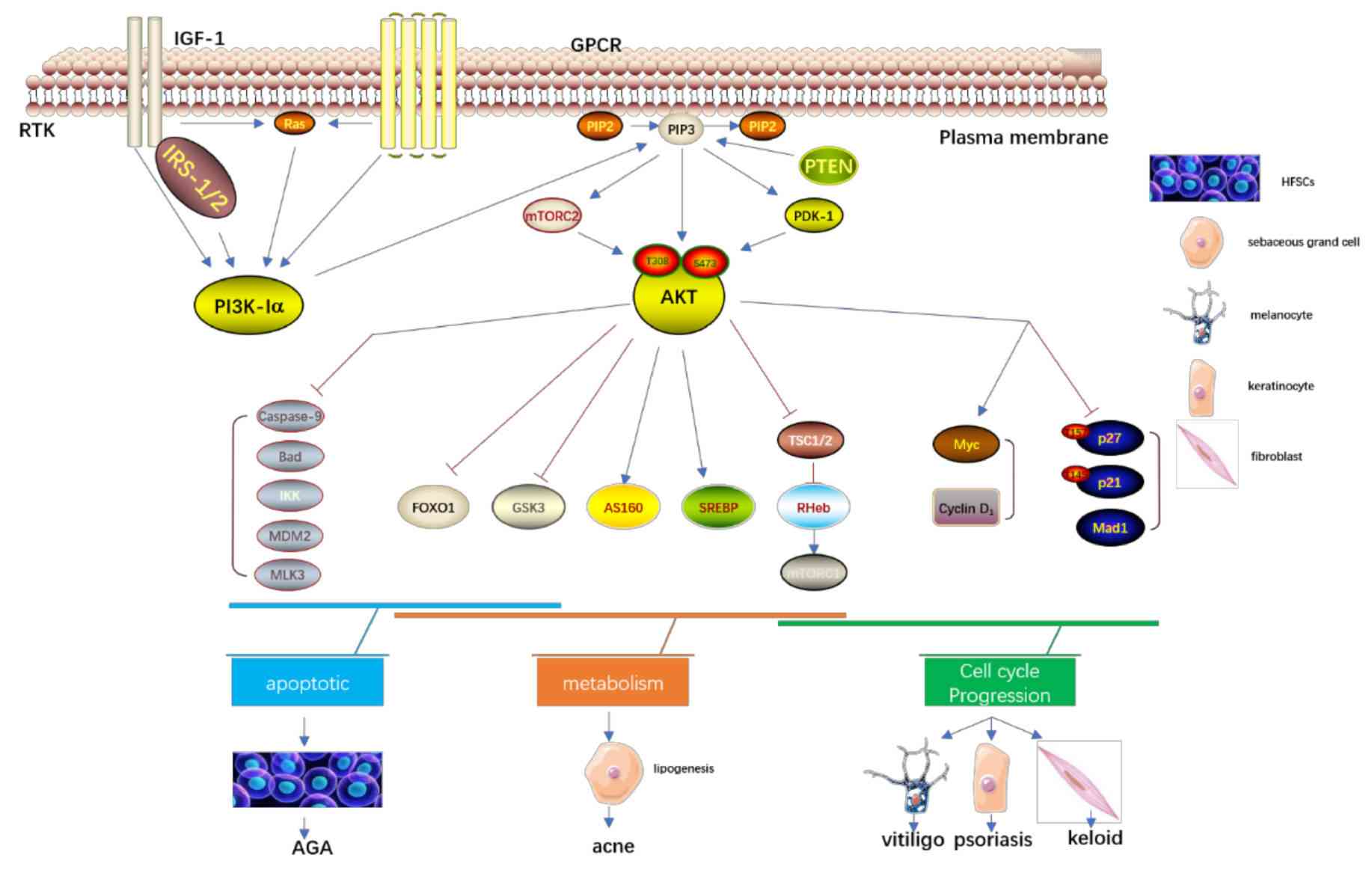Creative Biolabs is pleased to introduce our iPSC-facilitated cell proliferation/survival test services to our global customers, to advance your projects on on acne, hyper/hyposeborrhea, pigmentation, and AMD.
Stem cells produce proliferating transit-amplifying cells through cell proliferation, the latter then differentiate to construct tissues through growth, development, or regeneration. Proliferation of healthy cells is active but is opposite in dead or dying cells, growth-arrested cells, and senescent cells. Cell proliferation and survival are fundamental cellular processes, playing critical roles in a wide range of physiological and pathological processes. Uncontrolled cell proliferation is a cause of cancer, resulting in increased proliferation rates, or preventing cells from arresting their proliferation at normal time.
Cell viability is a vital indicator of the proportion of healthy living cells in a population, which is widely utilized to determine the overall health of the cells. Cell proliferation/survival can be measured directly by cell division events (cell count) or by markers of cell division/DNA replication (e.g. DNA content), becoming a useful tool for assessing cell viability.
Abnormal cell proliferation is observed in many skin diseases, including acne, hyper/hyposeborrhea, pigmentation, and Age-related macular degeneration (AMD). In acne and hyper/hyposeborrhea, functions of sebaceous glands (SGs) are enhanced, thus triggering heightened sebocyte proliferation. In skin pigmentation, it is reported that inflammatory modulators regulate the proliferation and differentiation of human epidermal melanocytes and directly or indirectly up/down-regulate the expression of melanogenesis-related gene expression. In addition, wet AMD is characterized by choroidal angiogenesis and cell proliferation. Therefore, cell proliferation/survival test is an important tool for studies on these diseases.
 Fig.1 The PI3K/Akt signaling pathway regulates cell proliferation in skin disorders.1
Fig.1 The PI3K/Akt signaling pathway regulates cell proliferation in skin disorders.1
The methods of cell proliferation/survival test are mainly divided into metabolic activity detection, DNA synthesis detection, cell proliferation-related antigen detection, etc. Creative Biolabs provides multiple choices of cell proliferation/survival test services to meet the specific requirements of our clients. The services available here include but are not limited to:
| Method | Description | Features |
| MTT Assay | Using MTT (C18H16N5SBr), a yellow tetrazole interacting with MDH, to identify living cells. | Rapid and high throughput |
| CCK-8 Assay | Using WST-8 to interact with MDH in living cells to produce orange formazan products. | Rapid and high throughput |
| BrdU Assay | Using BrdU to incorporate into newly synthesized DNA and performing detection using anti-BrdU antibody. | Suitable for investigating cell cycle kinetics and single cell resolution |
| CFSE | Using CFSE to penetrate the cell membrane and irreversibly couple to intracellular amino groups to cellular proteins, and analyzing the decreasing fluorescence intensity of each successive generation. | Suitable for live cell analysis in long experiments |
| Ki67 | Using antibodies targeting the nuclear antigen Ki-67 to measure cellular proliferation. | Suitable for assessing the percentage of total proliferating cells in all active phases of the cell cycle |
Creative Biolabs is dedicated to providing iPSC-facilitated cell proliferation/survival tests and related customized services for our global clients to aid in your projects on acne, hyper/hyposeborrhea, pigmentation, and AMD. Equipped with novel technical platforms and trustworthy team of scientists, we are proud to offer our reliable and rigorous test services along with specially designed experimental schemes and detailed data reports. If you have any needs regarding our services, please feel free to contact us at any time.
Reference
For Research Use Only. Not For Clinical Use.